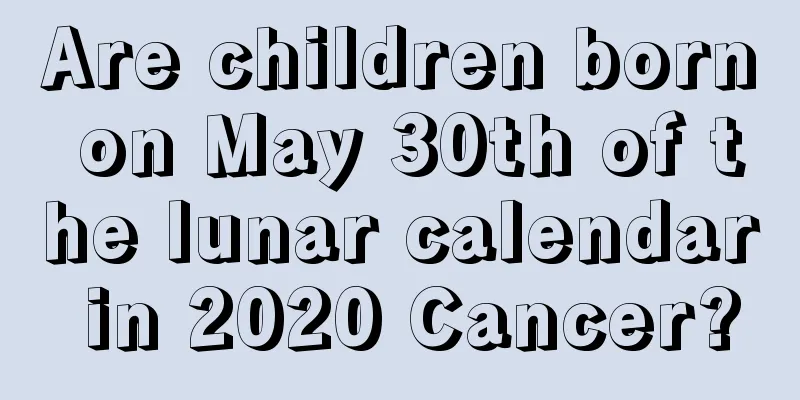Will it rain on the day of the Dragon Raising its Head on February 2? What does it mean when the dragon doesn’t raise its head but I do?

According to folk belief, February 2 is the day when the Dragon King raises his head, so people hold various sacrificial activities on this day in order to pray for good weather and good harvests in the coming year. A year's plan begins with spring. The wind in February of the lunar calendar officially brings spring, and the weather is gradually getting warmer. The Fortune Teller website will interpret every day of February of the lunar calendar in 2018 for you!Will it rain on the day of the Dragon Raising its Head on February 2?There is a folk saying in North China that "On the second day of the second month, the dragon raises its head". There is a saying that refers to the second day of the second month of the lunar calendar every year, which is the day when the Dragon King, who is in charge of rain in the sky, shows up, and it will rain on these two days.Every year around the "Rain Water" season, also known as the "Dragon Raising its Head" period, as the weather gradually warms up, cumulus clouds formed by the convection of cold and hot air slowly increase, and the average temperature steadily rises to above zero degrees Celsius. There is indeed a clear trend of increasing precipitation. Rainwater reflects the precipitation phenomenon, indicating that the snow has stopped falling and the rainy winter has passed. "Good rain knows the season, it occurs in spring; it sneaks into the night with the wind, moistening everything silently." Du Fu's "Happy Rain on a Spring Night" vividly depicts a night of drizzling rain in just twenty words. The colorful spring scenery mostly depends on the spring rain. It is nature's skilled "makeup artist", and people look forward to the continuous spring rain falling as they wish. What does it mean when the dragon doesn’t raise its head but I do?The saying "Dragon Raising its Head" was first seen in "A Brief Account of Scenery in the Imperial Capital" by Liu Dong of the Ming Dynasty: "On the second day of the second month, the dragon raises its head, New Year's Day cakes are steamed, leftover offerings are made, and the kang is smoked..." People believe that dragons are auspicious animals that are in charge of clouds and rain, and "the second day of the second month" is the day when the dragon wants to ascend to heaven. In my opinion, the origin of the saying "On the second day of the second month, the dragon raises its head" is related to the ancient Chinese astronomers' understanding of the stars and agricultural solar terms. Ancient Chinese astronomers observed the sky and determined twenty-eight constellations on the ecliptic, which are called the Twenty-Eight Mansions. The twenty-eight constellations are divided into four palaces according to the east, south, west and north, and are associated with four animals according to their images. Among them, the Seven Stars of the Eastern Palace were imagined as a giant dragon. In the second month of the lunar calendar every year, Jiao Su, which is the position of the dragon's head, will appear on the horizon, so it is commonly known as "February 2, the dragon raises its head." It is the Jingzhe solar term, and many parts of my country have entered the rainy season. This is a natural law, but the ancients believed that it was the "dragon" that brought the abundant rain."February 2" is also a day to look forward to career success. Many businessmen travel on this day, as it symbolizes the "dragon raising its head." In the past, schools would often admit students on this day in the hope that they would get first place in the exams. Students would also recite: "On the second day of the second month, the dragon raises its head. If the dragon doesn't raise its head, I will." Whether it is the above folk legends of "heaven and earth are integrated into one" or the various interesting folk customs passed down for thousands of years, they are all the crystallization of the wisdom of the ancient people. They all reflect the reality that ancient agriculture was restricted by the weather, and the farmers' desire for good weather and a good harvest. As the agricultural proverb says: "On the second day of the second month, the dragon raises its head, the big warehouses are full, and the small warehouses are overflowing." |
Recommend
Is it a good idea to hold the funeral on the sixth day of the twelfth lunar month in 2018?
The dead cannot be resurrected. The funeral proces...
2020 Lunar December 25th Hour Auspicious and Unlucky Query, Hour Auspicious and Unlucky Query
Check the auspiciousness and inauspiciousness of ...
Can I get married on the 18th day of the sixth lunar month in 2017? Is it suitable for engagement and marriage certificate?
The arrival of the leap month of June in the lunar...
How are you doing during the Little New Year? What is the origin of Xiaonian?
Introduction: When is the Little New Year usually ...
What is the fate of people born on the Lantern Festival who are of the Rooster sign? What is their destiny?
The Lantern Festival originated from the ancient f...
Isn’t the fifth day of May in 2022 a good day for the Dragon Boat Festival? Is it suitable to set up the bed during the Dragon Boat Festival?
The fifth month of the lunar calendar is the secon...
Is it a good time to start renovation on the 24th day of the fifth lunar month in 2021? What are the considerations for starting renovation?
There are actually quite a few things to pay atten...
Can we sign a contract on the 25th day of the sixth lunar month in 2018? Where is the God of Wealth on that day?
Signing a contract is a de facto binding relations...
Is April 20th of the lunar calendar 2021 a good day to sign a contract?
The fourth month of the lunar calendar officially ...
A complete analysis of the fate, fame and fortune of people born on National Day under the Chinese Zodiac Rooster
People born on National Day will have different zo...
Is it a good idea to give birth to a baby on the sixth day of the twelfth lunar month in 2018?
Ancient China was a country that believed in "...
What day is September 19th in the lunar calendar in 2021? Is it suitable to install a new bed?
In late September, "the autumn scenery someti...
Is it a good idea to get a marriage certificate on Chinese Valentine's Day in 2022? Should I give my boyfriend a gift on Chinese Valentine’s Day?
Is it a good idea to get a marriage certificate on...
What is the personality of people born on the Spring Equinox? Is their fate good?
Introduction: The Spring Equinox is one of the 24 ...
Is the beginning of autumn in 2017 a good day? Is it a good idea to open a new store?
Introduction: Although life is not easy for many p...









